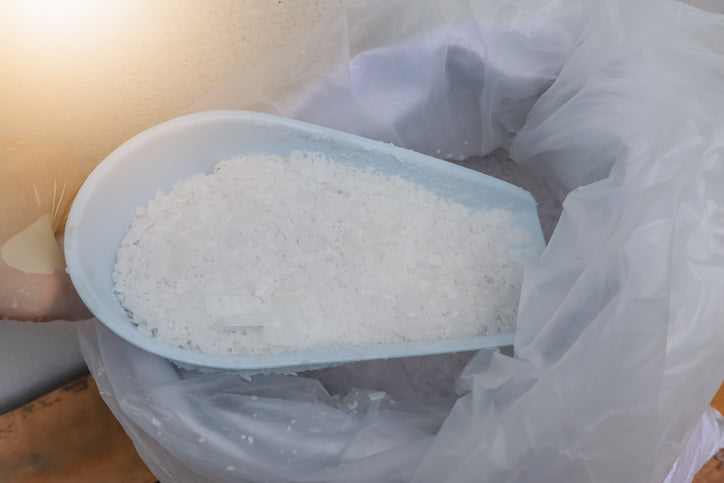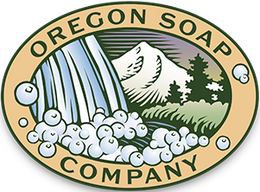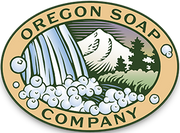What is Lye?

The process of creating soap has not changed much in 4,800 years since the ancient Egyptians pioneered a similar method. A natural process, it is known as saponification. A key ingredient in this is lye, but do you know how it is used?
There are a lot of myths about this product, though we can sort the fact from fiction. Read on as we answer the question "What is lye?"
What Is Lye?
Lye, known both as caustic soda for soaps, sodium hydroxide / potassium hydroxide, is an alkaline chemical used in several products and processes, particularly in the food and cleaning industry. There are several different types, mainly sodium hydroxide (used to make bar soaps) and potassium hydroxide versions (used to make liquid soaps).
As they have a very high PH, they can be caustic when found in high concentrations, burning surfaces, and even skin at their strongest. However, like any acids and alkalis, when used in lower strengths they are safe for use and consumption. Lye is also used in the process of making soap but is not present in the end product.
History Of Lye Soap
Lye has been a way to make natural soap for a long time. Before it was refined and was available in stores, it came from burning hardwood at high temperatures to get white ashes. A baking soda and water application would then remove the lye and create a solution known as potash.
Filtering of the ashes would take place, leaving a solution filled with lye. This could go to make soap or in the hide tanning industry. This method is the potassium hydroxide method of creating lye.
How Is Lye Made?
In the modern age, most lye comes from salt, the sodium hydroxide method. It begins with the dissolution of salt in water so that crystals fall to the bottom. This mixture then has graphite rods inserted into it.
These rods are then electrified, causing the salt crystal to attach themselves to the rods. Any remaining liquid gets poured off and evaporates so that lye crystals remain. This is then used for several purposes but in particular, soap making.
How Is Soap Made?
You may see soap bars advertised without lye in the ingredients. However, using lye is one of the most natural soap options.
Once the wholesale soap maker has the lye, they put it through a process known as saponification. It starts when the soap blends with oils and fats to start a chemical reaction. The oils and fat break down into fatty acid chains and the lye gets neutralized.
This is an important part of the process that many people do not understand. As lye is caustic, the assumption is that it is harsh on the skin. However, during the soap-making process, neutralization makes it safe for use.
There are then two methods to turn it into soap. A cold environment reaction and a heated one are the options. Most wholesale soap bars will have a heated environment, as it is a much quicker process.
With a heated process, the water evaporates quickly. This increases the speed of saponification and soap hardens quicker.
In cold pressing, the water evaporates naturally. While this takes much longer, it preserves more of the essential oils that can have their chemical structure altered during a heated process.
Can You Make Soap Without Lye?
Without lye, soap would just be a pool of oils and fat. Anyone selling soap that says they have not used lye is bending the truth. They will have other ingredients used to bind the soap but the lye will have been used in the chemical process.
Two of the main ingredients you may see are sodium tallowate and sodium cocoate. The first comes from tallow, a rendered form of beef or mutton fat. Sodium cocoate comes from a chemical reaction between lye and coconut oil.
At Oregon Soap Company, we use a variety of organic vegetable oils including olive, coconut, sunflower, jojoba, sustainably produce palm, and more!
Is Lye Safe Or Dangerous?
Lye in its base form is extremely dangerous and caustic. However, that is not what arrives in your soap. When it has undergone saponification it becomes very mild as long as the soap has been correctly made.
At Oregon Soap Company, we superfat all of our soaps by adding more oil to the recipe than is needed to neutralize all of the lye. This helps to insure that no lye is left in the final bar of soap. Curing the bars for a long period also ensures they are great for moisturizing and cleaning.
When a manufacturer creates bars or wholesale soap loaves, they make sure enough essential oils are present to dissolve all crystals. Curing the bars for a period also ensures they are great for moisturizing and cleaning.
Does Lye Dry The Skin?
In the past, lye soap garnered a reputation for drying out the skin. This was because the science of manufacturing using lye soap was in its infancy. Too much would be left in the soap after the process, drying out the skin.
Today, even amateur soapmakers have the instructions and tools to make high-quality soap using lye. With the right blend of fats, oils, lye, and the right process soap can be made safely.
Is Glycerin Soap Better?
Glycerin soap is a great moisturizer, but it undergoes the same process of saponification involving lye. The difference is that the process carries on further. Once the chemical reaction has finished, alcohol and sugar are added before pouring the soap into molds.
When buying glycerin soap check the ingredients carefully. It is an expensive substance, so most companies leave only a small amount in soap bars. Instead, it is sold to be used as fertilizer and explosives. Glycerin soaps are also known to dissolve quickly.
Healthy Soap Options
Now you can answer the question "What is lye?" you can see it is a natural, necessary ingredient. You are more likely to have problems with soaps that claim they don't use lye in their manufacture. As others are often made from animal fat, they are not suitable for vegans.
For boldly scented, cruelty-free soap the Oregon Soap Company should be your first stop. We can provide everything from wholesale batches to private labeling. Contact us here to discuss your needs and get your soap business started today.


Leave a comment